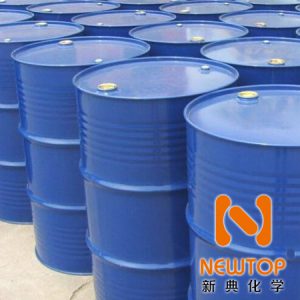Anhydrous tin chloride
Overview:
Product name: Anhydrous tin tetrachloride, CAS 7646-78-8, anhydrous tin chloride, high tin chloride, tin chloride

Di-n-octyl tin dimaleate monooctyl dimaleate CAS 33568-99-9 Di-n-octyltin monooctyl maleate
Product code: TTC
| Quality Standards | ||
| Item | Analytical Pure (AR) | Chemical Pure (CP) |
| Assay (SnCl4)Assay,% | ≥ 99.0 | ≥ 98.0 |
| Sulfate (SO4)Sulfate,% | ≤ 0.01 | ≤ 0.01 |
| 铁(Fe)Iron,% | ≤ 0.001 | ≤ 0.002 |
| Antimony (Sb)Antimony,% | ≤ 0.005 | ≤ 0.01 |
| Arsenic (As)Arsenic,% | ≤ 0.0005 | ≤ 0.001 |
| Hydrogen sulfide does not precipitate (calculated as sulfate) Substances | ≤ 0.05 | ≤ 0.1 |
| not precipitated by hydrogen sulfide,% | no | no |
| Solubility in water | Qualified | Qualified |
| Free chlorin | Qualified | Qualified |
English name: Tin Tetrachloride (TCC)
CAS Number: 7646-78-8
Molecular formula: SnCl4
Basic information:
Chinese name: Anhydrous tin tetrachloride
Chinese alias: anhydrous tin chloride; high tin chloride
English alias: Tin tetrachloride anhydrous; Tin chloride anhydrous
Danger sign: C (corrosive)
Physical and chemical properties:
Density: 2.226
Melting point: -33℃
Boiling point: 114℃
Properties: Colorless smoky corrosive liquid, sensitive to moisture. It is soluble in water and emits a lot of heat. It is soluble in ethanol, carbon tetrachloride, benzene, toluene, acetone, kerosene and gasoline. Moderately toxic, the median lethal concentration (rats, inhalation) 2300mg/m3. Irritating and corrosive.
Purpose:
The appearance is colorless, transparent or slightly yellow transparent fuming liquid, which is acidic. Soluble in water and emit a lot of heat, soluble in alcohol, carbon tetrachloride, benzene, toluene, gasoline, etc.
Can be used in the synthesis of organotin, TCO photovoltaic glass, LOW-E glass coating agent, medicine, organic synthesis as a catalyst and dehydrating agent p>
Storage and transportation:
Should be sealed and stored in a dry, cool and ventilated warehouse
Health hazards:
It has a strong stimulating effect on eyes, skin, mucous membranes and respiratory tract. Inhalation may cause death due to spasm, edema, inflammation, chemical pneumonia, and pulmonary edema of the larynx and bronchi. Poisoning manifestations include burning sensation, cough, wheezing, laryngitis, shortness of breath, headache, nausea and vomiting.
Packaging:
200KG/bucket Storage: It is recommended to store in a dry and cool area with proper ventilation. After the original packaging, please fasten the packaging cover as soon as possible to prevent the product performance from being mixed with other substances such as waterproof grade. Store in a cool, dry place, keep the container tightly closed, and avoid contact with oxides. Do not inhale dust and avoid contact with skin and mucous membranes. Smoking, eating and drinking are prohibited in the workplace. After work, take a shower and change clothes. Store contaminated clothes separately and use them after washing. Maintain good hygiene habits.


